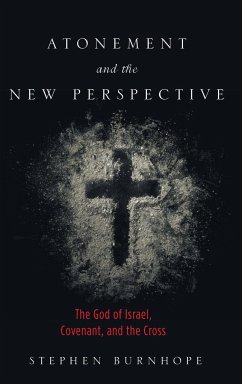There are many books about the cross of Christ, but few are written from an African perspective or with an African context in mind. In this book, Dr. Robert Falconer offers the reader a holistic understanding of Jesus's atoning work that powerfully addresses African realities and concerns. Grounded in Scripture and Christian theology, this book gives careful attention to the implications of the atonement for African traditional spirituality. Presenting a biblical perspective of the cross - one rooted in penal substitution and Christus Victor theology - Falconer demonstrates Christ's power in all aspects of our lives, including over ancestors, evil spirits, witchcraft, and sin. This book provides a deeper understanding of contextual issues facing the African church, while also demonstrating the role of the atonement in addressing our cultural concerns and restoring the hope of liberty, reconciliation, redemption, and resurrection.
Hinweis: Dieser Artikel kann nur an eine deutsche Lieferadresse ausgeliefert werden.
Hinweis: Dieser Artikel kann nur an eine deutsche Lieferadresse ausgeliefert werden.








